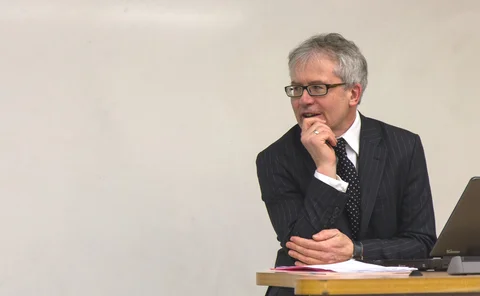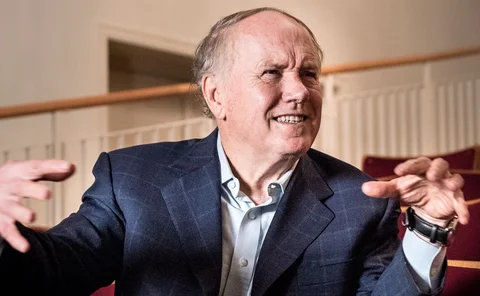Economics
Public spending cuts have bigger multiplier than fiscal stimulus – paper
Research weakens case for expansionary policies, say authors
Early asset purchases much more successful – BIS paper
Authors find effectiveness falls over time as the shock wears off, questioning the value of long-running quantitative easing
India needs radical reforms, says academic
State ownership has gone too far but the state needs stronger capabilities in other areas, argues Vijay Joshi
Policymakers need wider range of systemic risk models – paper
Researchers attempt to combine systemic importance and systemic risk approaches
BoE paper lays out ‘financial conditions index’ for UK
Index proves valuable as a summary measure and also as an input to forecasting
Slower health care price rises limiting US inflation, San Francisco Fed paper says
Medicare prices rise by 1.1% annually since 2012, compared with 3.5% in mid-2000s
Haldane outlines ‘interdisciplinary’ economics model
Andy Haldane and Arthur Turrell describe a way of broadening the scope of economics’ limited array of core models
More work needed on supply channel of finance – BIS paper
Demand-side links between the financial and real sectors are better understood, say authors
European recovery may be stronger than previously thought
If the great recession and sovereign debt crisis are considered a single shock, “recovery is in line with – or better than – historical patterns”
NY Fed economists reveal big-data approach to nowcasting
Paper sets out the New York Fed’s model for producing early estimates of major indicators
Low productivity might not be weighing on real rates – research
Long-run correlations imply there is little reason to believe low productivity is associated with low rates, Cleveland Fed economist finds
BIS paper studies how weak banks beget zombie firms
Weak banks have a tendency to misallocate capital, authors find, though the effect is only important in the long run, in contrast to earlier studies
NY Fed paper estimates US contagion risks
Authors design a network model incorporating non-banks to estimate how the risk of a “default cascade” has changed over time
AI adoption lag could explain productivity shortfall – research
Erik Brynjolfsson, Daniel Rock and Chad Syverson argue the productivity slowdown is not as surprising as it may seem, and there are reasons to be hopeful
Korea suffering from ‘missing inflation’ – deputy governor
Core inflation is still in the mid-1% range despite economic improvement
Making the most of big data
Per Nymand-Andersen, adviser to senior management at the European Central Bank, discusses how central banks can benefit from embracing big data and what this could mean for the industry in the near future.
Anti-gambling nudges can improve household finances – Philly Fed research
Natural experiment shows how removing “geographically close cues” can help tackle addiction
Market structure affects monetary neutrality – paper
Minneapolis Fed research finds oligopoly undermines the neutrality of money, amplifying the real impact of monetary shocks
Xi faces macroeconomic dilemma after China’s party congress
The Chinese premier will have to work hard to avoid a 'Minsky moment', says Hui Feng
Text mining reveals differences in PRA approach
Researchers compare Prudential Regulation Authority’s communications to its predecessor using a machine-learning algorithm
Zimbabwe back in hyperinflation, say Hanke and Bostrom
The economists estimate that Zimbabwe’s monthly inflation rate is now above 100%
Low inflation partly down to luck – CEPR report
David Miles and co-authors argue advanced economies’ luck on inflation could run out; recommend central banks prepare
US debt and delinquency exceed pre-crisis levels – research
After five years of deleveraging, US households started to increase their debts in 2013
Interview: Edward Prescott
The Nobel Prize-winner speaks to Daniel Hinge about time inconsistency and real business cycle theory, and explains why there is no ‘productivity puzzle’























